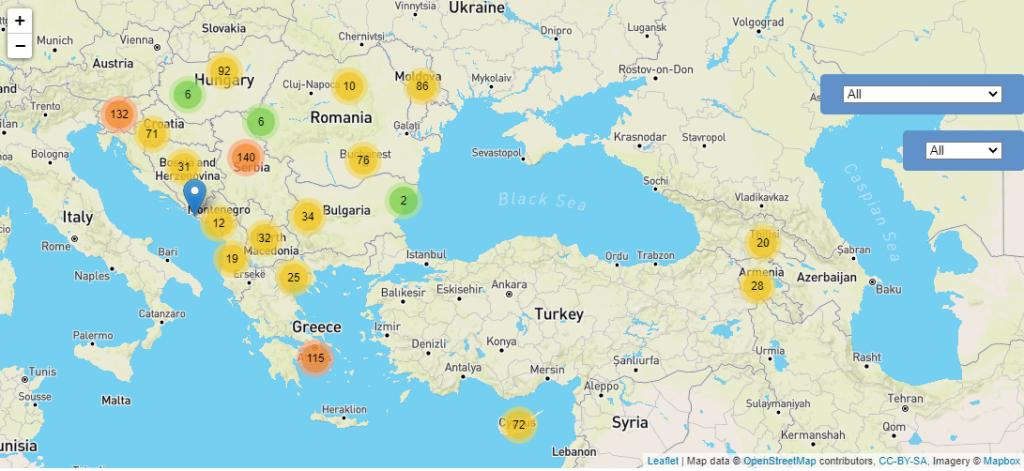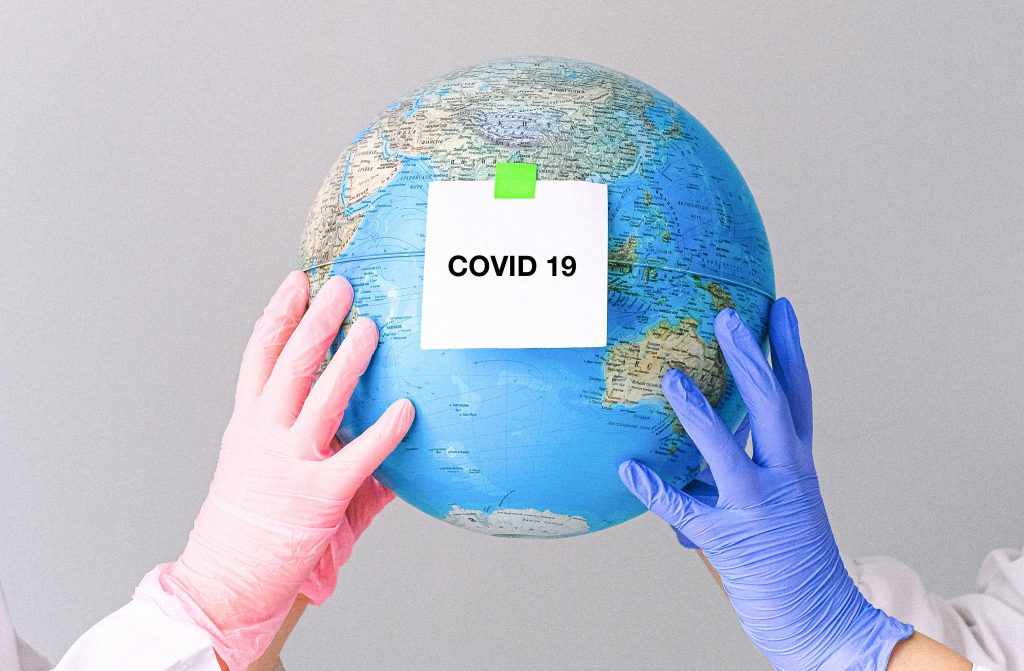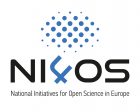
It was October 2019 when all NI4OS-Europe partners met in Athens to officially kick off the project. Open Science communities and infrastructures, and service operators for Research and Technology from South East Europe expressed their commitment to support all EOSC-related activities in our region. Looking back, it has been a fruitful year, despite the unforeseen implications caused by the COVID-19 outbreak. NI4OS-Europe delivered timely results in all the lines of activities: contributing to EOSC governance and inclusion, raising awareness about EOSC and FAIR, and providing technical support for the EOSC onboarding of services and repositories.

One important first milestone for the project was the successful conduction of a survey in all 15 NI4OS-Europe countries. This was the most extensive attempt to capture Open Science Cloud aspects in the region. More than 1000 stakeholders have been approached, with the response rate being close to 60%. Survey results have provided useful insights and drive the policy, training and onboarding activities in NI4OS-Europe. But they are also useful as such, as they constitute a valuable dataset on OSC stakeholders, services, policies and capacity in SEE. For this, the results have been visualized and are available via the project website. Additionally, NI4OS-Europe released its Stakeholder Map, an interactive map showing the active Open Science stakeholders in South East Europe, while the related dataset is deposited in Zenodo under a free license.
This good understanding of OSC capacity, issues and stakeholders in the regions, has been combined with the input from all partners about OSC state of the art in each NI4OS-Europe country and has driven the production of another major project outcome: the model blueprint for setting up National Open Science Cloud Initiatives (NOSCIs). This work is presented in detail in D2.2 National OSC initiatives models, which should be considered as a “handbook” that enables the setting up of NOSCIs. It identifies the necessary elements of Open Science Cloud models, addresses governance issues and suggests possible workflows and indicators facilitating the establishment and operation of the national initiatives.
In parallel we worked on the technical aspects of the EOSC inclusion: The NI4OS-Europe pre-production environment was deployed, enabling the onboarding, access and composability of resources, and community building among the resource providers. The pre-production environment includes: (1) a service portfolio system, which gives an overview of the project services, (2) an authentication and authorization infrastructure (AAI), which is responsible for a seamless access to all resources, (3) a monitoring system, measuring the availability and reliability of the services (4) an accounting system measuring utilization, and (5) a support system, which consists of tools for providing support to end users, including Helpdesk and training services. Starting this work from early on in the project allowed the quick onboarding of services and repositories, already in the first year of operation.
NI4OS-Europe also engaged in developing tools to address legal and policy aspects related to FAIR and ORDM.

The License Clearance Tool (LCT) is an open-source tool that aims to facilitate and automate the clearance of rights (copyright) for datasets, media, software, and other content that are to be cleared before they are publicly released under an open license and/or stored at a publicly trusted FAIR-enabling repository. It offers a guided approach for resolving IPR issues and establishing the proper open-source license required for the creation of a new (or synthetic) dataset, media, software, or for the re-use of existing unlicensed content. The development of two more tools has started in this first year and they will be delivered in the first half of 2021: the Repository Policy Generator and the Rules of Participation Legal & Ethics Compliance Tool.
Capacity building in the region is a major objective of NI4OS-Europe.

In the first year of the project we delivered seven Train-the-Trainer events and seven Capacity Building Trainings, covering topics such as onboarding, FAIR, ORDM, IT Service Management and EOSC promotion. In total, more than 800 people have participated in the NI4OS-Europe training events. In parallel the NI4OS-Europe training platform has been enriched with training material and gives the possibility for self-paced training.
Since day one of our project, supporting EOSC and FAIR awareness in our region has been a priority. For this, dedicated people have been chosen and the EOSC Promoters Network has been set up. Promotional material supporting EOSC service and FAIR principles uptake was drafted and translated to native languages of the NI4OS-Europe area, by the NI4OS-Europe Translation Officers.
The COVID-19 outbreak forced us to operate in unpredictable circumstances.

All activities, including the close collaboration with the INFRAEOSC-05 projects and the co-organisation of events, had to be transferred only online. Albeit the difficulties, we managed to organize national events in several NI4OS-Europe countries, but also the very successful “EOSC Governance workshop”, an online workshop that brought together NI4OS-Europe partners and EOSC Governance Board national delegates of the region.
NI4OS-Europe took action in the fight against COVID-19. It created a fast track access channel to its services, tools and software for the Scientific communities that perform extensive research to tackle the COVID-19 challenge, and set up a Wiki for easy access to COVID-19 related information.
It has been an intense and intensive year, but there is much more yet to come from NI4OS-Europe in 2021. Stay tuned!
Links
